Seventy-year-old Sir Arthur Nicholas Winston Soames is a useful starting point when attempting to get a sense of what is going on under the bonnet of Britain’s Conservative party.
He is a grandson of Winston Churchill, a great nephew of the founders of the Scout movement, Robert and Olave Baden-Powell, and a Conservative MP since 1983.
Last Wednesday during BBC Radio 4’s World At One programme, Mr Soames poured out his soul about Brexit.
"For the first time in 35 years in the House of Commons, I simply cannot see how this ends," he said.
The interviewer, Sarah Montague, asked her guest how he felt about the way everything has gone?
"I hate it, it has been the most unpleasant period of my time in the House of Commons, it is the most poisonous and unpleasant atmosphere, colleague very much against colleague and I hate factionalism in our party and unfortunately this virus has been infecting my party for 25-30 years now and it is very difficult to see how it is going to be resolved, or how the hangover will ever be taken away."
Brexit is sometimes described as the UK’s divorce from the European Union and the 2016 Referendum result the concrete evidence of irretrievable breakdown.
In that context, the view offered by Nicholas Soames, about what Theresa May should do as she faces into Tuesday’s House of Commons vote, was instructive.
"I believe she should actually go to the vote. I believe it is likely that the Prime Minister would not win that vote. And I think that it would be right for her to then go to Brussels and to say, this is the position I am in, you see the position I am in, you understand the position I am in, here is the result, you have got to help me get out of this fix."
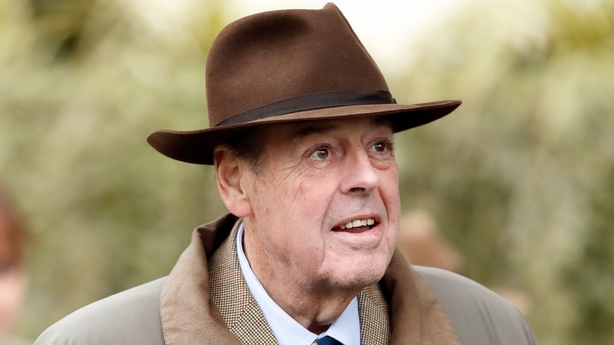
Nicholas Soames has a number of unsavoury traits, including occasional allegations of sexism and associations with Robert Mugabe, but invariably he speaks in instantly accessible language.
In March 2016, shortly after the then Conservative party leader David Cameron formally announced plans to hold a referendum on EU membership, Sir Nicholas was interviewed by Andrew Gimson for the Conservative Home website.
The Mid Sussex MP said: "This is the single most important political decision that’s going to be taken in my lifetime.
"I’m coming to the end of my political life (Soames was 68 at the time) and I am going to do whatever I can to hopefully persuade my fellow citizens that they must vote to stay in the European Union, even if they have to hold their nose doing so... Our whole political discourse no longer carries any reference to what went before. And I grew up in an era, and in a household, where history mattered and where it was a beacon and a reference point for how you went forward... It is so historically important for Britain to be part of the European Union. Europe is so much more than milk and money. I know how irritating it is, and I know in parts how badly run it is. I know all of that."
Question: Was it a mistake to have this referendum?
"Well, what is the point in giving a hostage to fortune when you don’t need to?"
Question: Well, Cameron probably did need to?
"There are two ways in my view to deal with this. If you have an Alsatian sitting in front of you, and it growls at you and bares its teeth, there are two ways of dealing with it. You can pat it on the head, in which case it’ll bite you, or you can kick it really hard in the balls, in which case it will run away.
"Successive Prime Ministers, and it’s not the present Prime Minister alone, have never understood that they have to take these people on, and that if you really believe that Europe is Britain’s destiny, and we have to be part of the European Union, then you should always say so."
Sinn Féin’s lateral thinking
On the weekend before what is the most important Ireland-related business at Westminster for decades, Sinn Féin decided to break towards the border and hold its Ard Comhairle meeting at Lissadell House in north Sligo.
It is the ancestral home of Constance Gore-Booth, later Constance Markievicz, who became the first woman elected to the House of Commons on 28 December 1918.She was one of 73 Sinn Féin MPs elected out of the 105 total Ireland representation.
In line with Sinn Féin’s abstentionist policy that continues to this day, she did not take her Westminster seat.
She had played a prominent role in the 1916 Rising as a member of the Irish Citizen Army.
Following a trial, she was sentenced to death but the court recommended mercy, solely on the account of her gender.
She was still in Holloway prison when her colleagues assembled in Dublin for the first meeting of the First Dáil.
But she served as Minister for Labour from 1919 to 1922, making her the first Irish female Cabinet minister and only the second female Cabinet minister in Europe, after Alexandra Kollontai in the Soviet Union.
She sided with Eamon de Valera and the others who left government in January 1922 because of their opposition to the Anglo-Irish Treaty.
Four years later she joined the new Fianna Fáil party.
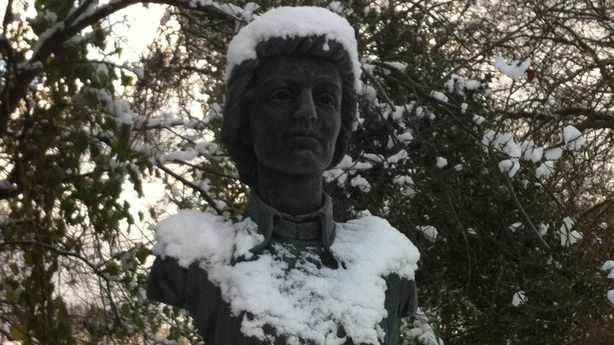
Although she successfully contested the 1927 General Election, illness prevented her from taking her seat. Aged 59, on 15 July 1927, she died in a public ward at Sir Patrick Dun’s Hospital of complications related to appendicitis.
The Constance Markievicz link and legacy are likely to be coveted and disputed territory between Sinn Féin and Fianna Fáil in the coming months.
Both parties are likely to see merit in being associated with her achievements, her values, her gender and her personal story.
But there is another Gore-Booth who should not be forgotten.
In his fine new book, ‘Fields Of Gold, A history of Aurivo Co-operative and farming in the West’, James Laffey stated that if any man could rightfully claim to have been the father of the co-operative movement in the North West, it was Josslyn Gore-Booth.
He was the younger brother of Constance and he spent much of his working life trying to support and encourage tenants on the Lissadell estate and farmers in many outlying areas to practice the co-operative principles championed by Horace Punkett.
As well as encouraging dairy farming, Josslyn Gore-Booth established commercial gardens to supply tomatoes, strawberries, cut flowers and vegetables.
His walled Alpine Garden was the breeding ground for a wide variety of seeds that were exported to countries including China and Japan.He also started a co-operative shirt factory and by 1906 his enterprises were employing more than 200 local people.
In the complex web that is our history, the brother of Countess Markievicz lost two of his sons in World War 2.
Brian was killed in 1940 and Hugh was killed in 1944.Within days of learning of the death of a second son, Josslyn Gore-Booth passed away in March 1944.
James Laffey’s book charts how the values championed by Gore-Booth made no distinction between Catholic and Protestant holdings.
The principles he practised facilitated the incremental development of what is now the Aurivo Co-Op, currently providing 700 jobs in Connacht and Donegal and drawing a significant portion of its milk pool from the other side of the porous border.
Some of Sinn Féin’s seven Westminster MPs attended the gathering in North Sligo. By House of Commons standards, they have time on their hands.
All of them subscribe to the party’s abstentionist role.
In a way akin to how, in different circumstances, republicans in the past picked a spot on the wall, stared at it and remained silent, Sinn Féin members travel to London each week, uphold the party’s policy of not taking an oath of allegiance to a British monarch and refuse to take their seats, debate or vote in the House of Commons.
They do exactly as they promised in the 2017 General Election campaign that saw them oust three outgoing SDLP Westminster MPs, all former party leaders, Mark Durkan, Alastair McDonnell and Margaret Ritchie.
It is possible to have occasional private ‘what if’ conversations with senior Sinn Féin figures. There are times when one can raise the outside possibility of giving pragmatism priority over dogma. But the usual Shinner conclusion is "if our 7 walked into the House of Commons and decided the vote in a certain way, after the abuse had subsided, there would a stampede of voters in the other direction."
The logic in favour of ‘the pick a spot on the wall and stay silent’ Sinn Féin Westminster approach would seem to be airtight.
At the Lissadell gathering, Mary Lou Mc Donald, the party president, confirmed this and denounced "revisionists" who might encourage a shift on the abstentionist policy. But in the current House of Commons climate, others have been prepared to think and do the unthinkable.
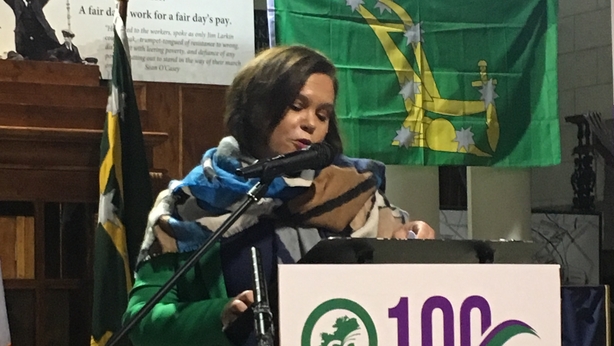
Last week the DUP, the Labour Party, the SNP and The Lib Dems were prepared to join forces with Tory Brexiteers in order to embarrass, undermine and defeat Theresa May.
The Labour Party leader, Jeremy Corbyn, the successor of Good Friday Agreement champion, Tony Blair, is prepared to join forces with the DUP to scupper a Withdrawal Agreement that is acceptable to a majority of the people in Northern Ireland.
The story of Northern Ireland’s Assembly is that Sinn Féin collapsed it over a row with the DUP and fourteen months later the DUP pulled back from the deal that would get them power-sharing again.
In blunt terms, if Sinn Féin had closed the doors, the DUP, heavily influenced by its Westminster 10, decided they should stay closed.
The story of Westminster is that circumstances have made the DUP more powerful and influential than at any stage in the party’s House of Commons history. And Sinn Féin by its silence, and consistent with its mandate, may be passing on its option to challenge or dilute that DUP Westminster influence.
In the three votes lost by Theresa May and her government last Tuesday, in relation to the Withdrawal Agreement Legal Advice, the margins were 4, 18 and 22.
The unrepresented majority
In the 2016 Brexit Referendum Northern Ireland voted to Remain by more than an 11% margin - 55.8% to 44.2%.A breakdown of what happened in 18 Westminster constituencies is given below.
Belfast East. MP Gavin Robinson DUP
Turnout 66%.Leave 51.94%. Remain 48.06%
Belfast North MP Nigel Dodds DUP
Turnout 58%.Leave 49.64%. Remain 50.36%
Belfast South.MP Emma Pengally DUP
Turnout 68%.Leave 30.51%.Remain 69.49%
Belfast West MP Paul Maskey Sinn Féin
Turnout 49%.Leave 25.94%. Remain 74.06%
East Antrim MP Sammy Wilson DUP
Turnout 65%.Leave 55.19%. Remain 44.81%
East Londonderry MP Gregory Campbell DUP
Turnout 60% Leave 47.97%. Remain 52.03%
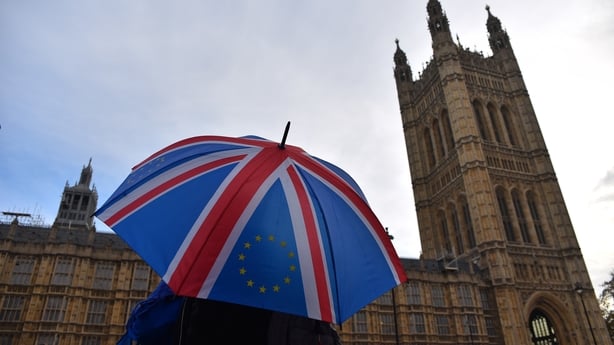
Fermanagh/South Tyrone. MP Michelle Gildernew Sinn Féin
Turnout 68% Leave 41.44%.Remain 58.56%
FoyleMP Alisha Mc Callion Sinn Féin
Turnout 57%. Leave 21.74%. Remain 78.26%
Lagan Valley MP Jeffrey Donaldson DUP
Turnout 67%. Leave 53.09%.Remain 46.91%
Mid UlsterMP Francie Molloy Sinn Féin
Turnout 62%. Leave 39.61%.Remain 60.39%
Newry and Armagh MP Conor Murphy Sinn Féin
Turnout 64%.Leave. 37.06%.Remain 62.94%
North Antrim.MP Ian Paisley DUP
Turnout 65%.Leave 66.22%.Remain 37.78%
North Down MP Sylvia Hermon Independent Unionist
Turnout 68%.Leave 47.64%.Remain 52.36%
South Antrim MP Paul Girvan DUP
Turnout 63%. Leave 50.64%.Remain 49.36%
South Down. MP Chris Hazzard Sinn Féin
Turnout 62%. Leave 32.76%. Remain 67.24%
Strangford. MP Jim Shannon DUP
Turnout 64%. Leave 55.53%. Remain 44.47%
Upper Bann. MP David Simpson DUP
Turnout 64%. Leave 52.62%. Remain 47.38%
West Tyrone.MP Orfhlaith Begley Sinn Féin
Turnout 62%.Leave 33.15%.Remain 66.85%
Seven of the 10 DUP MP’s represent constituencies where a majority of voters favoured LEAVING the European Union.
Ian Paisley’s North Antrim (66.22%), Jim Shannon’s Strangford (55.53%) and Sammy Wilson’s East Antrim (55.19%) were the most Pro-Brexit constituencies
Three of the 10 DUP MP’s represent constituencies where a majority of voters favoured REMAINING in the European Union.
Emma Pengally’s South Belfast (69.49%), Gregory Campbell’s East Londonderry (52.03%) and Nigel Dodds’
North Belfast (50.36) are the three DUP-represented Pro Remain Constituencies.
North Down, represented by Independent Unionist Sylvia Hermon, is the only one of the 11 Pro-Remain constituencies to have the mandate expressed in House of Commons votes
The Pro-Remain vote in the seven constituencies represented by Sinn Féin ranged between 78% and 56%.Foyle, Ailish Mc Callion (78.26%): West Belfast - Paul Maskey (74.06%)South Down - Chris Hazzard(67.24%). West Tyrone Orfhlaith Begley (66.85%); Conor Murphy - Newry and Armagh (62.94%): Mid Ulster Francie Molloy (60.39%).Fermanagh-South Tyrone - Michelle Gildernew (58.56%)
The Backstop and the Orange Card
The ‘oppose the backstop’ campaign is the modern equivalent of The Orange Card.
The DUP didn’t just threaten it last week, they played it.
Now that it has been produced, the DUP will have no issue with using it again and again.
It is the ultimate rallying call of unionism - the fear of being betrayed, cut adrift, left behind.
It was the instinct that made 500,000 people sign the Ulster Covenant in 1912.
It was the factor that led to the importation of over 20,000 rifles and between three and five million rounds of ammunition (purchased within the German empire) at Larne, Donaghadee and Bangor in 1914.
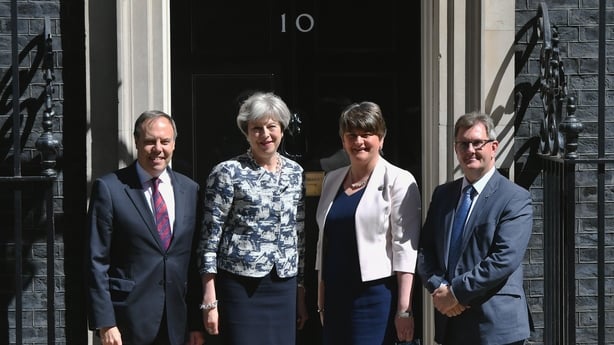
The DUP’s row with Theresa May suits hardline Brexiteers because they couldn’t muster the numbers to remove her and don’t have a viable political strategy to challenge her.
It suits the Labour Party leader, Jeremy Corbyn because he wants to become prime minister and like the Brexiteers, doesn’t have a viable Brexit strategy that would unite his party and gain the support of the majority of the electorate.
It suits the Scottish nationalists because they are envious of the ‘best of both worlds’ formula offered to Northern Ireland in Theresa May’s proposed Withdrawal Agreement and they will use the current tension to undermine Labour and the Conservatives in Scotland.
It also suits the Scottish Conservatives because they have to track the Scottish nationalists and make sure the special arrangements for Northern Ireland do not become a factor in Scottish politics.
It means Theresa May is in danger of going under in a pool where there is no obvious lifeguard on duty.
The Centre struggles to hold
The Brexit saga is the news story that keeps on giving and most of it are, for very obvious reasons, drawn to it.
But while the Westminster chamber is the theatre of chaos, there is calamity of an identical scale happening in a wider context. And the phenomena are linked, indeed inseparable.
The National Health Service with its promise of free healthcare for all was the healing gift that helped Britain repair and recover after the Second World War. It can now take up to four weeks to get a still no cost appointment with a GP.
On a main network news television bulletin last month, dominated by Brexit coverage, an item detailing delays in thousands of cervical cancer screening tests.
The HS2 system is the project intended to provide a high-speed rail extension to the North of England at a cost of £56 billion.
The plan, like much of Britain’s rail network is in difficulties and if it is not abandoned the HS2 project could cost double the original estimate.
Britain’s third-level education system, with its free tuition fees and maintenance grants for all was once the envy of the western world. Those arrangements are no more.
English universities can now charge up to a maximum of £9,250 per year (in excess of €10,000) for an undergraduate degree. The equivalent charge in Irish universities is €3,000. In England the system of maintenance grants has been ditched by successive Labour and Conservative governments and replaced by a system of loans, with interest attached.
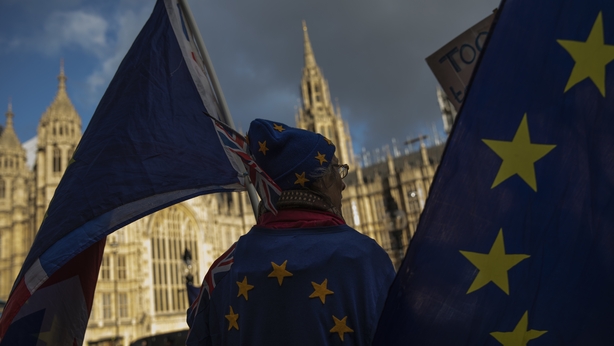
Figures released last month suggest one in three 18-year-olds applying for university places in England, Wales and Northern Ireland this received some form of unconditional offer.
Such is the competition from colleges to get ‘units’ paying £9,250 annual tuition fees in their doors, they are offering guaranteed places even before students sit their final second-level exams.
The unconditional offer numbers have risen from 3,000 in 2013 to 68,000 in 2018.
Statistics published by the reputable Joseph Rowntree Foundation last week suggest four million British workers, one in eight of the workforce, now live in poverty.
The number of people with a job but living below the breadline has risen faster than employment.
A growing number of working parents find it hard to earn enough money to pay for food, clothing and accommodation due to weak wage growth, an erosion of welfare support and tax credits and the rising cost of living.
Such evidence of things falling apart goes a long way to explaining the passionate intensity at the heart of Britain’s Brexit.
Things are indeed falling apart and the centre cannot hold.
When faced by problems so complex there is no obvious solution, the entirely understandable reaction is blame someone and do something. For a section of British Conservatives, the European Union and the leaving of it fit the bill.
Ireland’s vulnerability
These are perilous times for the smaller island behind the bigger island.
One undeniable truth is our interconnectedness.
In big picture terms, Ireland seems unable to check the growth of its version of the malaise that it is a polarizing force in its nearest neighbour.
Boarded-up shops and falling-down new schools. Ryanair flights with a growing quota of construction workers commuting from mainland Europe, busy Monday to Friday on Dublin construction sites, as they once were in London.
Apartments in the most sought after places of the capital being snapped up by foreign investors with limitless amounts of money.
An increased number of places in medical schools being reserved for foreign applicants who are delighted to pay a multiple of the set tuition fees for Irish students.
As documented by Olivia O’Leary on RTÉ’s Drivetime during the week, the practice of Dublin restaurants charging €75, for the only available lunch menu, the Christmas one, in the closing days of November.
The creaking at the seams two-tier health care system that will have termination of pregnancy services bolted on during the opening days of January, traditionally the most challenging period of the year.
But dealing with Brexit is the immediate priority and as the UK shapes up to leave the EU, Ireland is the most vulnerable family member in a messy divorce.
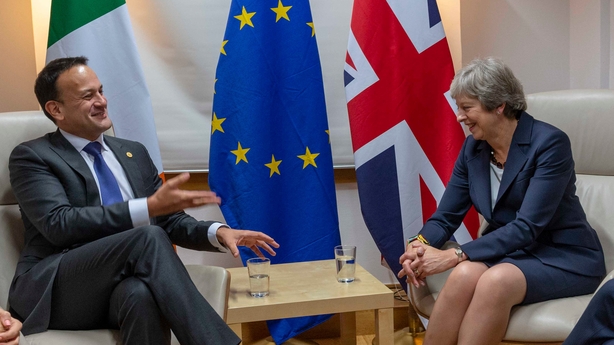
If the ‘Bin the Backstop’ or ‘Dilute the Backstop’ campaign works, there will be no border in the Irish Sea.
If the stated Irish, UK and EU intentions are upheld, there can be no border on the island of Ireland.
That reduces the options to some sort of border between the two islands - most of one of them an EU member state - and mainland Europe.
Or no meaningful border at all between the said islands and mainland Europe - the Brexiteers dream, the best of all worlds, provided they could make their own trade deals.
Leo Varadkar and his government need no history lessons.
Centuries ago the hope was that support from France or Spain would arrive to change the equation in times of strife.
The circumstances are different now but the fundamental danger - becoming the collateral damage - is the same.
Being a member of the European Union, retaining the solidarity of the club, is not a solution.
But it is the vital difference between then and now.






